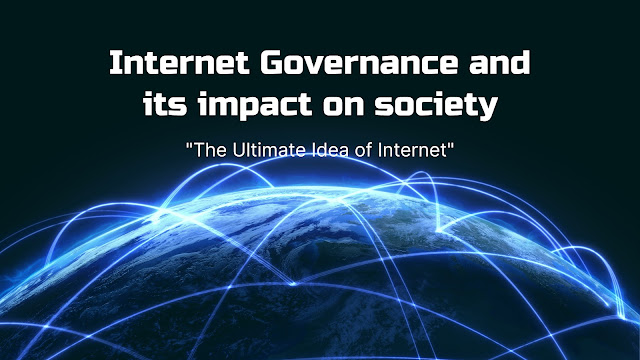
Introduction
Internet Governance refers to the policies, regulations, and practices that govern the use and management of the internet. It encompasses a wide range of issues, including accessibility, security, privacy, intellectual property, and the balance between freedom of expression and the protection of human rights. Internet governance is a complex and multi-faceted issue that involves many different stakeholders, including governments, private companies, civil society organizations, and individuals.
The internet has become an integral part of modern society, connecting people and organizations across the globe and enabling the sharing of information and ideas. However, with the rapid growth of the internet, there have also been challenges, such as the spread of misinformation, cybercrime, and the erosion of privacy and personal data. Internet governance plays a crucial role in addressing these challenges and ensuring that the internet remains a positive and beneficial force for society.
One of the main challenges of internet governance is balancing the need for security, privacy, and freedom of expression. Governments around the world have attempted to regulate the internet in order to protect their citizens from online threats, but these regulations can also restrict freedom of expression and access to information. This has led to ongoing debates and discussions about the appropriate level of regulation and oversight of the internet.
Another important aspect of internet governance is the role of private companies, particularly the large technology companies that control much of the online infrastructure. These companies have significant power and influence over the way the internet is used and governed, and there is ongoing debate about the appropriate level of regulation and oversight of these companies.
Internet Governance is the policies, regulations, and practices that govern the use and management of the internet. It encompasses a wide range of issues, including accessibility, security, privacy, intellectual property, and the balance between freedom of expression and the protection of human rights. Internet governance plays a crucial role in addressing these challenges and ensuring that the internet remains a positive and beneficial force for society, but it is a complex and multi-faceted issue that involves many different stakeholders.
Challenges of internet governance
Internet governance poses a number of challenges that are increasingly important to address as the internet continues to evolve and become more ingrained in our daily lives. Some of these challenges include:
Balancing Security and Privacy: One of the main challenges of internet governance is balancing the need for security, privacy, and freedom of expression. Governments around the world have attempted to regulate the internet in order to protect their citizens from online threats, but these regulations can also restrict freedom of expression and access to information. This has led to ongoing debates and discussions about the appropriate level of regulation and oversight of the internet.
Cybercrime: With the internet becoming a fundamental part of modern society, cybercrime has become a serious issue. Cybercriminals use the internet to commit a wide range of crimes, such as hacking, identity theft, and the spread of malware. Tackling these crimes requires a coordinated effort from governments, private companies, and individuals.
The Digital Divide: The internet has the potential to connect people and organizations across the globe, but access to the internet is not evenly distributed. There are still many areas of the world where access to the internet is limited, and this digital divide can have a negative impact on economic development, education, and access to information.
The Role of Private Companies: Private companies, particularly the large technology companies that control much of the online infrastructure, have significant power and influence over the way the internet is used and governed. There is ongoing debate about the appropriate level of regulation and oversight of these companies, and how to ensure they are accountable for their actions.
Cyber Sovereignty: The internet is a global network, but different countries have different laws, norms, and values. This has led to the rise of the concept of cyber sovereignty, which refers to the idea that countries should have the right to control and govern the internet within their borders. This concept has led to a number of challenges in terms of balancing the free flow of information with the need to protect national security, privacy, and human rights.
Misinformation and Disinformation: The internet has made it easier than ever before to spread misinformation and disinformation, which can have negative impacts on society and can also be used to manipulate public opinion and interfere in political processes.
Conclusion
internet governance poses a number of challenges that are
increasingly important to address as the internet continues to evolve and
become more ingrained in our daily lives, from Balancing Security and Privacy,
cybercrime, digital divide, the role of private companies, cyber sovereignty
and misinformation and disinformation. These challenges require ongoing efforts
from governments, private companies, and individuals to ensure the internet
remains a positive and beneficial force for society.





